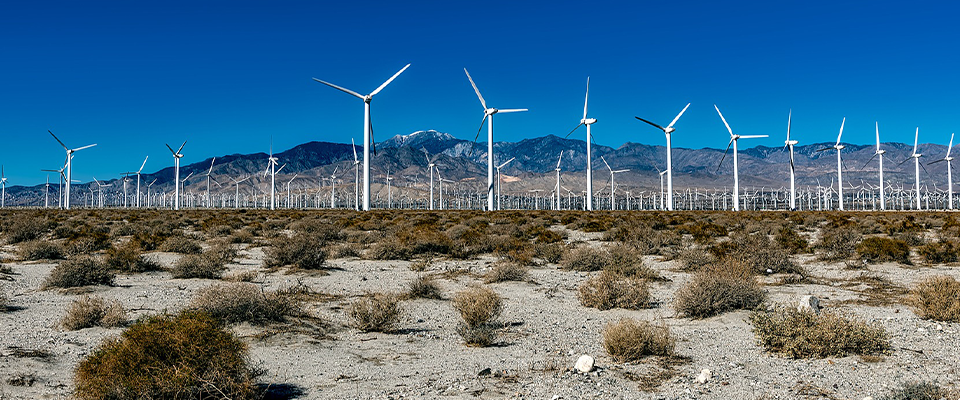1) Production/Supply
Efficient energy production—including exploration, extraction, and refining—is a pillar of research on campus. Scientists also study renewable energy sources, such as solar and wind power, looking at the potential for nanoscale solar cells or ways to improve the efficiency of wind turbines. There’s an entire department devoted to nuclear engineering. And there are scientists in Electrical Engineering and Computer Science who design automated systems that oversee the efficient generation and distribution of power.
Who’s who:
Paul Alivisatos pioneered the development of nanocrystals, also known as quantum dots, and has extended them into the base for cheap, flexible solar cells. Tasios Melis studies ways of obtaining hydrogen from green algae, which could lead to a clean, renewable source of hydrogen fuel.
(2) Energy Policy
Berkeley professors advise energy policy-making at all levels: local transportation groups, the state public utilities commission, national regulations, even international trade policies. Much of their work focuses on the electricity industry and the government’s role in its regulation.
Who’s who:
Dan Kammen is conversant in Swahili, once wired a concert for the Grateful Dead, and has been hired to make British tycoon Richard Branson’s private island carbon-neutral. Laura Nader (sister of Ralph) studies energy and culture in society, and the way energy innovations are created and received in America and elsewhere.
(3) Conservation/Energy Use
Just as important as efficient production is efficient energy use. That’s a major focus in Architecture and at LBNL ‘s Energy and Environmental Technologies Division, both of which study green building design. Researchers design heating and cooling systems, lighting, and computer systems to automatically track energy use in offices. They create simulators to better model building energy use through the day, test people’s thermal comfort in air-conditioned offices, and study roofing technology to better insulate building interiors.
Who’s who:
Bruce Nordman researches powersaving options in office equipment, such as personal computers and copy machines. Hui Zhang and Charlie Huizenga study how office heating and cooling systems can be made more efficient without sacrificing comfort.
(4) Environmental Impacts
Climate change research inspires and is involved in almost every energy project, but Berkeley scientists also look at other environmental impacts of human energy production and use, such as their threats to biodiversity and wildlife habitat; air quality and emissions; and how soil, plants, and algae trap carbon.
Who’s who:
W. Michael Hanemann has studied how global warming might affect agriculture in the United States, and analyzed the history of California’s recent climate change legislation, AB 32. Richard Norgaard studies the economics of renewable energy, especially agriculture and its energy costs, and also compares how scientists and economists perceive environmental problems.
(5) Transportation/Combustion
Berkeley researchers in a variety of disciplines, from chemistry to economics, are delving into transportation questions: Can we be weaned off petroleum products? Will biofuels actually offer an improvement? Can we be induced to drive less? Can we improve the efficiency of engines, of traffic lights, of entire transit systems? The areas of study are diverse: large-scale concepts in biofuels, batteries, combustion, fuel cells, and engine and turbine efficiency, as well as focused projects such as efficient cruise control and how people see and respond to LED traffic signals.
Who’s who:
Tim Lipman has been road-testing an F-Cell hydrogen car for its maker, DaimlerChrysler, and in late July he and a co-researcher at the Institute of Transportation Studies were selected to test plug-in hybrid vehicles for Toyota. Alexander Skabardonis studies freeway bottlenecks, pavement fatigue, express bus service, and those nasty traffic “queues” that cause increased fuel consumption and emissions.
(6) Energy Economics/Markets
Many of the arguments in the modern environmental discussion center on economics. That’s particularly true in the energy debate, where the costs of climate-change action or inaction, the costs of regulation, and the costs of gasoline and oil are popular topics. Economists study energy pricing, the economic impacts of new technologies, and how real estate markets affect energy use in residential buildings.
Who’s who:
James Bushnell is an associate editor of the journal Operations Research and a market advisor to the California Independent System Operator, which administers the state’s electricity grid. Catherine Wolfram studies energy markets and residential energy consumption, and how regulatory activities affect the costs of energy production and use.




















